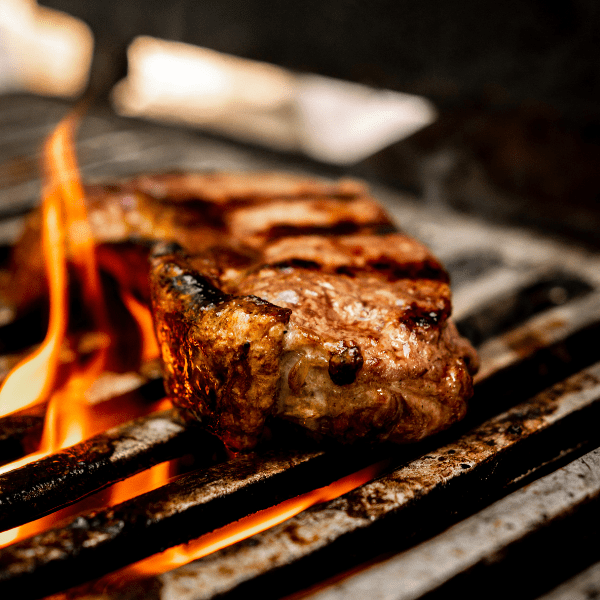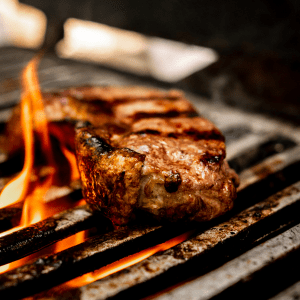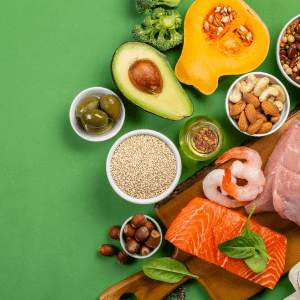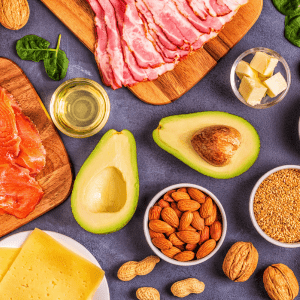The Ultimate Guide to the Carnivore Diet: Everything You Need to Know
In recent years, the carnivore diet has surged in popularity, catching the eye of health enthusiasts and skeptics alike. At its core, this diet is as simple as it sounds: consume animal products and nothing else. But what exactly does this entail, and why are so many people swearing by its health benefits? In this comprehensive guide, we’ll delve deep into the carnivore diet, exploring what it is, how it works, and how you can implement it into your lifestyle.
What is the Carnivore Diet?
It is a stringent eating routine that only consists of animal food. It disproves all plant-based diets, contending that a diet high in meat is more appropriate for human beings. Advocates of this diet assert that it offers several health advantages, such as decreased inflammation, increased energy, and weight loss.

How Does the Carnivore Diet Work?
At its core, the carnivore diet works by eliminating dietary carbohydrates. This causes your body to enter a state comparable to ketosis, where it burns fat rather than sugar to produce energy. Without plant-based foods, your body relies on animal fats and proteins, which can lead to rapid weight loss and other metabolic benefits.
What Can You Eat on the Carnivore Diet?
When following this diet, your food intake will be primarily made up of meat, fish, eggs, and limited dairy. High-fat cuts of meat are encouraged to help meet your energy needs, while organ meats are recommended for their nutrient density.
This specific diet excludes all plant-based foods and emphasizes a diet heavy in fat and protein that only includes animal products. Here’s a comprehensive list of foods typically consumed on the Carnivore Diet:
Meat
- Beef: steaks, ground beef, roasts
- Pork: chops, loin, bacon, ham
- Lamb: chops, leg, ground lamb
- Chicken: breasts, thighs, wings, drumsticks
- Turkey: breasts, ground turkey, turkey bacon
- Game meats: venison, bison, elk, rabbit
Seafood
- Fatty fish: salmon, mackerel, sardines, trout
- Shellfish: shrimp, crab, lobster, oysters, scallops
- Other fish: cod, haddock, tilapia
Organ Meats
- Liver (beef, chicken, or pork)
- Kidneys
- Heart
- Brain
- Tongue
Other Animal Products
- Eggs: whole eggs are preferred for their nutrient density
- Dairy (for some variations of the diet): butter, cheese (particularly hard cheeses), heavy cream. Note that some individuals exclude dairy due to lactose content.
- Bone broth: rich in nutrients and minerals
Fats and Oils (Animal-Based)
- Tallow
- Lard
- Duck fat
- Butter (if dairy is included)
Beverages
- Water: still or sparkling
- Bone broth
- Animal-based supplements: fish oil, collagen
Seasonings (Minimally)
- Salt
- Pepper (for those not strictly excluding plant-derived seasonings)
This diet focuses on whole, unprocessed animal foods and excludes all grains, legumes, fruits, vegetables, nuts, and seeds. It’s important to note that while this diet may work for some individuals, it is highly restrictive and may not be suitable for everyone.

How to Start the Carnivore Diet
It all starts with preparation. Gradually reduce your intake of plant-based foods while increasing your consumption of meats and animal products. It’s also important to educate yourself on the nutritional aspects to ensure you’re meeting all your body’s needs.
How Long Should You Do the Carnivore Diet?
How long you should do this specific diet is based on your desired level of health and the way your body reacts to the diet. Some adopt it as a temporary elimination diet to identify food intolerances, while others follow it long-term for its purported health benefits. Listening to your body and consulting with a healthcare provider is crucial.
Benefits And Downsides
The all-meat approach, offers several intriguing benefits. Its simplicity cuts through the confusion of calorie counting and nutrient tracking, making dietary choices straightforward. Many adherents report effective weight loss, thanks to the filling nature of protein, which helps curb hunger and reduce calorie intake. Some also experience digestive relief, as cutting out fiber can ease specific gut issues. Additionally, improvements in symptoms of autoimmune conditions have been noted, possibly due to the elimination of inflammatory plant substances. The diet’s high-fat, high-protein content may also stabilize blood sugar levels, a plus for those with diabetes or metabolic syndrome. However, weighing these benefits against potential long-term health considerations is essential.
Being focused solely on animal products, presents several downsides. It lacks essential plant nutrients, such as Vitamin C and fiber, potentially leading to deficiencies. The high consumption of red and processed meats raises the risk of certain cancers and heart disease due to saturated fats and cholesterol. Additionally, the absence of dietary fiber can adversely affect gut health. Environmental sustainability is also a concern, as the diet relies heavily on resource-intensive animal farming. While it may seem appealing to some, this “meaty” diet poses significant health and environmental risks.
A 5 Day Meal Plan
This plan is designed to provide a wide range of animal-based foods each day, ensuring adequate intake of protein and fats consistent with this diet’s principles. Always consider consulting a healthcare provider before starting any new diet to ensure it aligns with your health needs and goals.
Frequently Asked Questions
Is carnivore diet actually healthy?
While many report positive outcomes, this diet is still controversial. It’s high in saturated fats and lacks certain vitamins found in plant-based foods. Consulting with a healthcare provider before starting is advised.
Can I drink coffee on the carnivore diet?
Strictly speaking, coffee is a plant-based product. However, many on this diet make exceptions for coffee and tea, focusing instead on eliminating solid plant foods.
Will I experience any side effects?
Initially, you may experience symptoms like fatigue, headaches, or digestive changes as your body adjusts. These are often temporary and can be mitigated by staying hydrated and ensuring adequate fat intake.
What Vegetables Can You Eat?
This is a trick question—what vegetables can you eat on the carnivore diet? None. The diet excludes all plant-based foods, focusing solely on animal products to fulfill dietary needs.
Conclusion
This animal-product-focused diet represents a significant shift from conventional dietary guidelines, and while it may offer benefits for some, it’s not without its drawbacks. Embarking on such a diet requires careful consideration, preparation, and ongoing monitoring of your health and nutritional intake. To be sure you’re making the best decision possible, conduct extensive research and speak with medical professionals before making any dietary changes.
Ultimately, whether the carnivore diet is a temporary experiment or a long-term lifestyle change, it’s an individual journey that should be approached with openness and caution. You can choose a plan that meets your dietary preferences and health objectives by knowing the plan’s fundamentals, possible benefits, and risks.












Have you ever considered publishing an e-book or guest authoring on other sites?
I have a blog centered on the same subjects you discuss and would love to have you share
some stories/information. I know my audience would enjoy your work.
If you are even remotely interested, feel free to send me
an e mail.